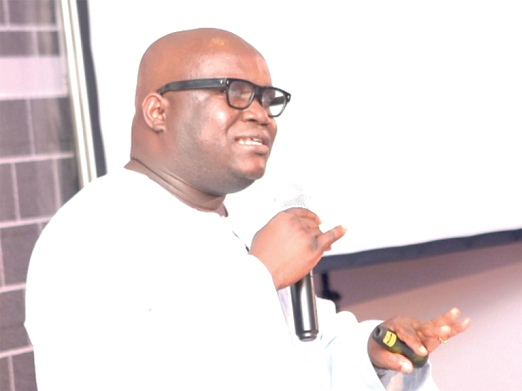Mobile phone users must be wary of fake or counterfeit phones because of the health risks and quality of service challenges they pose, the Chamber of Telecommunications Ghana has cautioned.
It explained that counterfeit phones are cloned versions of popular brands and models and are usually made from sub-standard materials, meaning their users were exposed to higher radiation.
The fake phones were also responsible for the delivery of poor quality service.
“It is regrettable to know that these fake phones impact the quality of service network operators offer, thereby, offering customers poor user experience,” the Chief Executive Officer (CEO) of the chamber, Mr Ken Ashigbey, said at a programme to mark this year’s World Consumer Rights Day at the Rawlings Park in Accra.
Mr Ashigbey said the fake mobile devices were “usually not tested and certified for safety and were often made from cheap components.”
He, therefore, urged the public to buy their mobile phones, devices and accessories from trusted and licensed equipment manufacturers and dealers who could provide means of verifying the authenticity of their products.
Research
The Ghana Atomic Energy Commission (GAEC) in a research in 2010 found that fake cell phones emitted radio frequency radiations higher than what was internationally stipulated as safe for human exposure.
The study found that for mobile handsets, the safe exposure threshold was 2.0 watts per kilogramme (W/kg), but some of the phones tested in the study showed emission levels way higher than the threshold.
In 2016, Tanzania disconnected more than 630,000 fake mobile phones, joining Cameroon, South Africa and Nigeria in efforts to boost security and health measures.
According to experts, counterfeit phones did not have authentic International Mobile Equipment Identity (IMEI) numbers that were crucial for identifying and tracking mobile phones, making it easier for criminals such as militants and terrorists to escape detection.
Pre-registered SIM cards
With more than 41 million subscriber identification module (SIM) cards connected in Ghana and used for transactions such as mobile money and investments, Mr Ashigbey said it called for increased safety and security of the devices and services.
Turning his attention to SIM card registration, he cautioned the public against the purchase of pre-registered SIM cards, since it was fraudulent and exposed mobile phone users to cyber fraud and other security hazards.
“We entreat the general public to report any persons who are trading in pre-registered SIM cards to the police and mobile network operators. Pre-registered SIM cards compromise everyone on the network and as an industry, we are committed to working together to fight this menace,” he said.
Quality of service
Service quality issues remain a major concern for the public with call drops, poor internet services, network congestions, as well as mobile money fraud.
Mr Ashigbey said consumers had rights and responsibilities, adding, “we will work together with our customers to ensure that they did not compromise on their security and data privacy as they gain access to these new services, more responsive products, greater convenience and choice.”
Parliament
A member of the Parliamentary Select Committee on Communications, Mr Sam George, said the committee would put pressure on the telecom companies to deliver quality services, while working with them to enact legislations that would fight SIM box fraud, fake SIM cards and fibre cuts.
A representative of the Consumer Protection Agency made a case for Parliament to pass the Consumer Protection Bill, which had been before the House since 2007.
–
Source: graphic.com.gh















